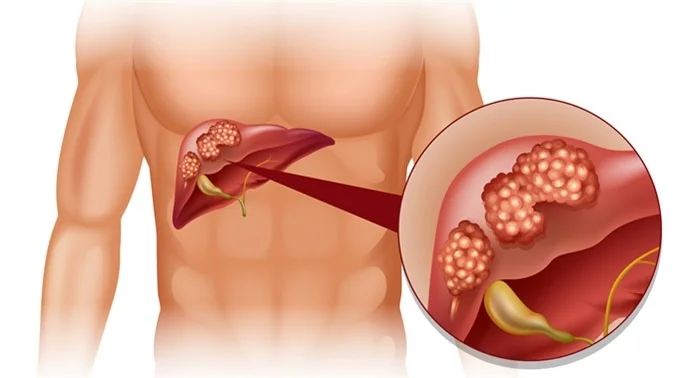Introduction
Immunotherapy represents a transformative approach in the treatment of various diseases by harnessing the body’s immune system to fight cancer, infections, and other conditions. In the realm of liver diseases, particularly liver cancer and chronic viral hepatitis, immunotherapy has emerged as a promising avenue for improving treatment outcomes. This section delitates into the different types of immunotherapy, their applications in liver diseases, ongoing research, and future prospects.
Core Concepts of Immunotherapy
- Mechanisms of Immunotherapy:
- Immune System Activation: Immunotherapy works by stimulating the body’s immune system to recognize and attack disease cells, such as cancer cells or virus-infected cells.
- Targeting Specific Molecules: Some therapies focus on specific molecules involved in immune responses, enhancing the body’s ability to mount an effective attack against disease.
- Types of Immunotherapy:
- Checkpoint Inhibitors: These drugs block proteins that inhibit the immune system, allowing immune cells to better recognize and attack cancer cells.
- CAR-T Cell Therapy: This involves modifying a patient’s T cells to better target and kill cancer cells.
- Cancer Vaccines: These vaccines stimulate the immune system to attack cancer cells or prevent cancer from developing.
- Monoclonal Antibodies: These are lab-made molecules that can bind to specific proteins on cancer cells, marking them for destruction by the immune system.
- Oncolytic Virus Therapy: This approach uses genetically modified viruses to selectively infect and kill cancer cells while stimulating an immune response against the tumor.
Applications in Liver Diseases
- Liver Cancer (Hepatocellular Carcinoma):
- Checkpoint Inhibitors:
- Overview: Checkpoint inhibitors such as pembrolizumab (Keytruda) and nivolumab (Opdivo) block proteins like PD-1/PD-L1 that cancer cells use to evade immune detection.
- Research and Results: Clinical trials have demonstrated that these inhibitors can lead to durable responses in some patients with advanced liver cancer, offering new hope for those who have not responded to traditional treatments.
- CAR-T Cell Therapy:
- Overview: CAR-T cell therapy involves modifying T cells to express chimeric antigen receptors (CARs) that specifically target liver cancer cells.
- Research and Results: While still largely experimental in liver cancer, early studies show promise in targeting specific tumor antigens with potentially significant therapeutic benefits.
- Cancer Vaccines:
- Overview: Therapeutic vaccines are designed to stimulate the immune system to target specific antigens associated with liver cancer cells.
- Research and Results: Clinical trials are exploring vaccines that target cancer-specific antigens or viral proteins in hepatitis-related liver cancer.
- Monoclonal Antibodies:
- Overview: Monoclonal antibodies such as bevacizumab (Avastin) target vascular endothelial growth factor (VEGF) to inhibit tumor blood supply, while others target specific cancer cell surface proteins.
- Research and Results: These antibodies are being studied for their ability to enhance the effectiveness of other treatments and improve outcomes for liver cancer patients.
- Chronic Hepatitis B and C:
- Immunotherapy for Hepatitis B:
- Overview: New therapies aim to boost the immune response against hepatitis B virus (HBV) to achieve a functional cure.
- Research and Results: Clinical trials are investigating the use of therapeutic vaccines, immune modulators, and checkpoint inhibitors to enhance the body’s ability to control or clear HBV infection.
- Immunotherapy for Hepatitis C:
- Overview: While direct-acting antivirals (DAAs) have revolutionized hepatitis C treatment, research is exploring immunotherapy to prevent relapse or reinfection.
- Research and Results: Studies are focusing on enhancing the immune response to hepatitis C virus (HCV) using immune checkpoint inhibitors and novel vaccine strategies.
- Autoimmune Liver Diseases:
- Overview: Autoimmune liver diseases, such as autoimmune hepatitis, occur when the immune system mistakenly attacks liver cells.
- Immunomodulatory Approaches: New immunotherapies aim to modulate or suppress the overactive immune response, potentially offering more targeted treatments than conventional immunosuppressants.

Ongoing Research and Clinical Trials
- Combination Therapies:
- Overview: Combining immunotherapy with other treatment modalities, such as targeted therapies or chemotherapy, may enhance effectiveness and overcome resistance.
- Current Studies: Clinical trials are investigating combinations of checkpoint inhibitors with targeted therapies or radiation to improve outcomes for liver cancer patients.
- Personalized Immunotherapy:
- Overview: Personalized approaches tailor immunotherapy based on individual patient characteristics, including tumor genomics and immune profiles.
- Future Directions: Research is focusing on identifying biomarkers that predict response to immunotherapy and developing personalized treatment strategies.
- Overcoming Resistance:
- Challenges: Not all patients respond to immunotherapy, and mechanisms of resistance are being actively studied.
- Innovations: Research aims to understand and overcome resistance mechanisms, potentially by developing new agents or combination therapies.
Future Prospects
- Expanding Indications:
- Exploration: Immunotherapy is being tested for various liver diseases beyond cancer, including chronic viral hepatitis and autoimmune conditions, with the goal of expanding its therapeutic applications.
- Enhanced Safety Profiles:
- Developments: Ongoing research seeks to improve the safety profiles of immunotherapies by minimizing side effects and managing immune-related adverse events more effectively.
- Accessibility and Integration:
- Challenges: Ensuring equitable access to advanced immunotherapies and integrating these treatments into standard care practices will be crucial for maximizing their impact on liver disease management.
Conclusion
Immunotherapy is reshaping the treatment landscape for liver diseases, offering new hope through innovative approaches like checkpoint inhibitors, CAR-T cell therapy, and therapeutic vaccines. As research advances, the potential to enhance treatment efficacy, address resistance, and personalize care will drive progress in managing liver cancer and chronic viral infections. With ongoing research and clinical trials, immunotherapy is poised to play a pivotal role in the future of liver disease treatment, improving patient outcomes and quality of life.







